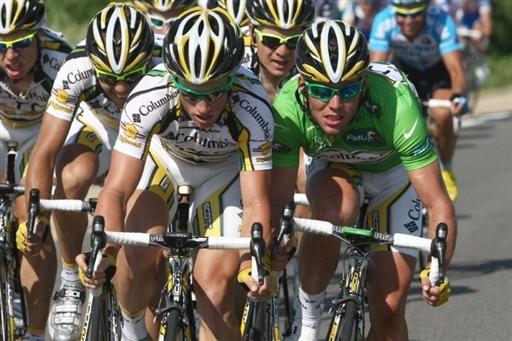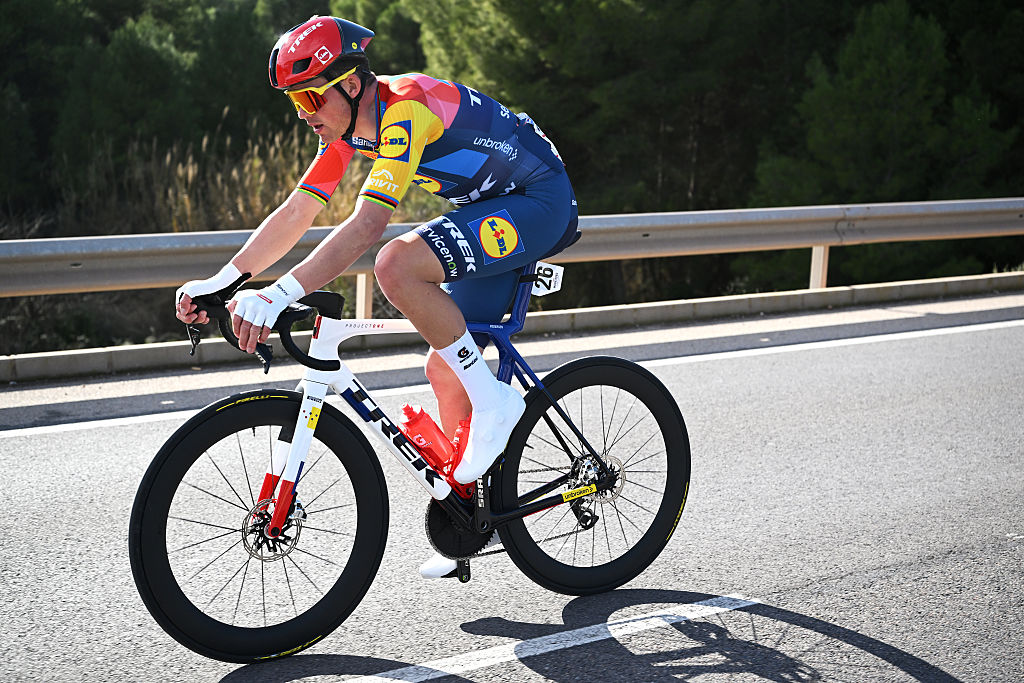Differing accounts from Cavendish and Rogers on stage 3
Columbia-HTC and Armstrong seize their opportunity
The latest race content, interviews, features, reviews and expert buying guides, direct to your inbox!
You are now subscribed
Your newsletter sign-up was successful

Mark Cavendish claimed that there had been no Columbia plan and no attack as the wind whipped off the Mediterranean and blew across the Camargue marshlands. But the stage three winner’s version of events was contradicted by his Columbia-HTC teammates Michael Rogers and George Hincapie, who were both key protagonists in the great escape.
According to the rider himself, it was Rogers who instigated the move that forced the split. "The other teams weren’t going to help us close the gap [to the break] but with 40km {actually at 32km to go - ed.] to go we made a right [turn] and the wind was coming from the left hand side,” explained the Australian. “I asked the guys to just do 5km as hard as they could. We opened up an echelon and the rest was done."
This area is notorious for vicious crosswinds – two years ago, on a stage into Montpellier, the Alexandre Vinokourov-led Astana team adopted an identical tactic on these pan-flat, wind-battered roads. On that occasion there was only one big loser, Christophe Moreau.
Two years on, despite the fact that the wind was a light breeze compared to last time, there was carnage, with Alberto Contador, Cadel Evans, Carlos Sastre and the Schleck brothers among the overall favourites to concede valuable time.
Columbia-HTC seemed to find willing allies in Astana, despite the fact that Contador and Andreas Kloden were missing. Lance Armstrong, though, was there, prompting speculation that he might have had prior knowledge of the attack.
Hincapie, who rode by Armstrong’s side for all seven of his Tour wins, was asked that question, and he responded initially with a blank expression, as though weighing his words carefully. “I saw Lance,” he shrugged. “I mean, he was obviously excited [to be in the move] but we were there, just doing our job.
"We had Mick Rogers there," Hincapie continued, "and people were just sitting back [not helping with the chase]. But we saw a moment to attack and we took it."
The latest race content, interviews, features, reviews and expert buying guides, direct to your inbox!
Coming just 24 hours before the team time trial, for which Columbia-HTC and Astana are favourites, it was perhaps surprising to see both teams working so hard. "No," said Rogers when asked whether he thought the other teams had expected such a move. "But we’ve got nothing to lose, and we had nothing to prove here. We spent some energy, but so did the guys behind chasing us, so everyone’s going to have sore legs tonight."
Rogers was the last rider in the lead group to be credited with the same time as Cavendish after puncturing in the final kilometre.
Richard Moore is a freelance journalist and author. His first book, In Search of Robert Millar (HarperSport), won Best Biography at the 2008 British Sports Book Awards. His second book, Heroes, Villains & Velodromes (HarperSport), was long-listed for the 2008 William Hill Sports Book of the Year.
He writes on sport, specialising in cycling, and is a regular contributor to Cyclingnews, the Guardian, skyports.com, the Scotsman and Procycling magazine.
He is also a former racing cyclist who represented Scotland at the 1998 Commonwealth Games and Great Britain at the 1998 Tour de Langkawi
His next book, Slaying the Badger: LeMond, Hinault and the Greatest Ever Tour de France, will be published by Yellow Jersey in May 2011.
Another book, Sky’s the Limit: British Cycling’s Quest to Conquer the Tour de France, will also be published by HarperSport in June 2011.
